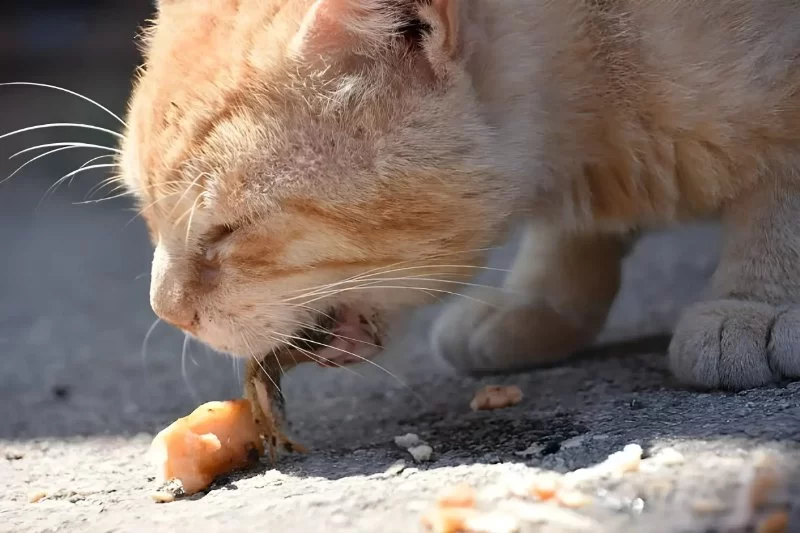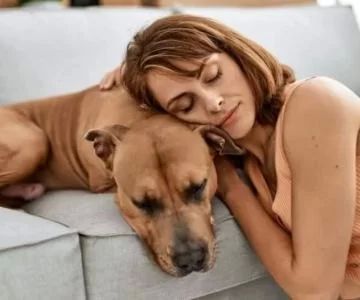Why Your Cat Vomits Food After Eating Too Quickly – Understanding the Causes and Solutions
If you’ve ever noticed your cat vomiting food shortly after eating, you're not alone. This common problem, where a cat vomits after eating too quickly, can be both concerning and frustrating. But don’t worry – this issue is usually manageable with some understanding of its causes and the right approach. In this article, we’ll explain why your cat might be vomiting after meals and provide you with effective solutions to ensure your furry friend’s well-being.
- 1. Why Does My Cat Vomit After Eating Too Quickly?
- 2. What Causes Cats to Eat Too Fast?
- 3. Solutions to Prevent Your Cat from Vomiting After Meals
- 4. When to See a Vet
1. Why Does My Cat Vomit After Eating Too Quickly?
There are a few reasons why your cat may vomit food after eating too quickly. Cats, by nature, tend to hunt and eat their prey rapidly. However, domestic cats can develop similar habits, especially when they’re hungry or stressed. Eating too quickly doesn’t allow the stomach to properly process the food, leading to a build-up of air or food, which the cat will often regurgitate.
Another factor that contributes to vomiting after meals is the pressure exerted on the stomach when food is consumed rapidly. This can cause discomfort and result in the cat vomiting the undigested food shortly afterward. While this can be a one-off occurrence, repeated vomiting after meals can indicate a chronic issue.

621 Larpenteur Ave W, Roseville, MN 55113, USA
See Details2. What Causes Cats to Eat Too Fast?
Several factors can cause your cat to eat too quickly, and understanding them is key to solving the issue:
- Hunger or Stress: Cats that go long periods between meals may feel desperate to eat and consume their food too quickly when it’s available. Stressful environments or competition with other pets can also lead to this behavior.
- Food Competition: If you have more than one pet, cats may rush to eat to avoid sharing their food, which can encourage rapid eating.
- High-Energy Foods: Some high-calorie, highly palatable foods may trigger fast eating in cats, as they find them especially appealing and easy to consume.
- Bowl Design: A narrow or small food bowl might encourage your cat to eat more quickly, especially if they have to maneuver around the sides of the bowl.
3. Solutions to Prevent Your Cat from Vomiting After Meals
Fortunately, there are several ways to help your cat slow down their eating habits and prevent vomiting:
- Use a Slow-Feeder Bowl: Specially designed slow-feeder bowls are a great tool to help your cat eat at a slower pace. These bowls have ridges or obstacles inside that force your cat to work around them to access the food, naturally slowing them down.
- Divide Meals Into Smaller Portions: Rather than giving your cat one large meal, consider dividing it into smaller, more frequent meals throughout the day. This will help prevent overeating and encourage slower eating.
- Try Puzzle Feeders: Puzzle feeders engage your cat's mind while they eat, which can slow them down. These feeders often require your cat to solve a small puzzle before they can access their food.
- Feed in a Calm Environment: Ensure your cat eats in a quiet and stress-free area where they won’t feel rushed or distracted by other animals or noises.
- Switch to Larger, Wider Bowls: A larger and wider food bowl can prevent your cat from eating too quickly by allowing them to take their time with the food and eat from a more comfortable position.
4. When to See a Vet
While vomiting after eating too quickly is usually harmless, it’s important to watch for signs of a more serious issue. If your cat is frequently vomiting, lethargic, or showing signs of pain, it could indicate an underlying health problem, such as a digestive disorder, food intolerance, or even a serious illness.
It’s always a good idea to consult with your veterinarian if the vomiting persists or worsens over time. A vet can help diagnose the issue and recommend further treatment, such as changes to your cat’s diet, medication, or a more comprehensive health evaluation.
Taking the right steps to prevent your cat from eating too quickly will not only reduce the chances of vomiting but also promote better digestion and overall health. For more personalized advice and products to help manage your cat’s eating habits, visit Hidden Brook Veterinary.










